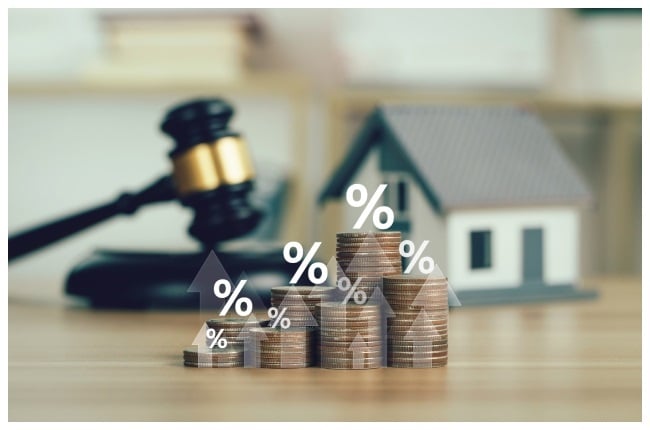
On May 25, the repo rate climbed to 8.25% and the lending prime rate increased to 11.75%.
This was the 10th consecutive interest rate hike in the past eight months.
According to the South African Reserve Bank (SARB) governor Lesetja Kganyago, the rate hikes are necessitated by the crippled state of the economy and the persistent high consumer inflation.
In his previous address, he estimated that load shedding on its own would deduct two percentage points in the repo rate growth just this year.
As these rates now firmly stand at its highest point since 2009, experts warn of another rate hike by the end of July.
Ironically, July is savings month and Standard Bank’s solution owner of savings and investments, Thopi Mhloli tells Drum that debt holders have to start buckling up for the next rate hike.
And it all starts with recognising what she calls “a classic money mistake”; living beyond their means.
“Whether you’re spending more than your budget allows or not setting aside enough money to cover your bills, when you finally notice, it can be tough to pinpoint where the problem actually began.”
Mhloli adds that “if you’re worried that you’ve picked up some harmful money habits, it’s never too late to try and correct them.”
Read More | 5 ways to weather the tough economic times and not cancel essentialsBelow are the five signs she details along with her best advice for getting back on track and ensuring that your finances are protected going forward.1. Your money’s gone, but you’re not sure where toA clear sign of overspending is when your account balance is continuously lower than expected — as in, the money’s been spent but you don’t know how. One way to address this is by using a budgeting app. This app will not only help you keep track of where your money goes but also offers helpful tips for cutting expenses and saving more for the things that matter.2. You don’t have an emergency fundIf you lack an emergency fund, it could be a sign that you're living beyond your means. Life is unpredictable and unexpected expenses can arise at any moment - from sudden medical costs to major car repairs or even job loss. An emergency fund serves as a financial safety net for such unplanned costs. If you don’t have one, it may mean that you're spending all your income without setting aside anything for the emergencies. Prioritising an emergency fund can help you better prepare for financial surprises and avoid slipping further into debt.3. Your savings have stopped growingMaking regular deposits into your various savings accounts is crucial, not only for the peace of mind it brings, but also in the event that you need to tap into your savings to cover an unexpected expense. If your savings have hit a bit of a slow patch, consider redirecting some of what you’re spending on non-essentials to ensure you’re saving up enough to be financially secure. It can be difficult to prioritise saving over spending money right now, but remember that saving is a long-term measure to help your future self, offering financial protection and the promise of a more prosperous and stress-free future.4. You’re letting FOMO dictate your spending habitsThe fear of missing out is something we all struggle with from time to time, especially if we pay too much attention to social media. We’re constantly faced with the curated feeds of influencers and friends “living their best lives” on vacations and at top clubs and restaurants. Next thing you know, you're on a spending spree to keep up. But instead of going into debt to keep up, why not save for the holidays, experiences or things that you want? With Standard Bank’s Notice Deposit investment account, you can make deposits from just R100 and pick a notice period that works for you. By making regular small deposits, you can watch your travel (or entertainment) fund grow into something that can finance your next dream destination or bucket list outing.Read More | How to combat debt and make your salary last till the next month, according to financial expert5. You're not paying enough attention to insuranceWhen juggling life's many demands, insurance might seem like just another drain on your finances. Instead, think of it as a personal protector, always on standby to rescue you when unexpected costs surface. A vital step towards financial stability is shielding your assets. Having this shield ensures that life's unforeseen incidents won't disrupt your finances, keeping you firmly on the path towards financial prosperity.If you’re seeing your own situation in some (or all) of the above signs – whether it's not knowing where your money is going, lacking an emergency fund, having stagnating savings, letting FOMO steer your spending, or not paying enough attention to insurance – it's time to take action. Taking steps to understand your spending habits, creating a safety net for emergencies, prioritising savings, controlling impulsive expenditures, and securing your future with insurance are critical parts of this process. It may seem daunting, but addressing these issues now will pay off in the long run. Whatever your approach, the good news is that it’s never too late to adjust your financial behaviour and start (or reinforce) your savings – your future self will thank you.



















